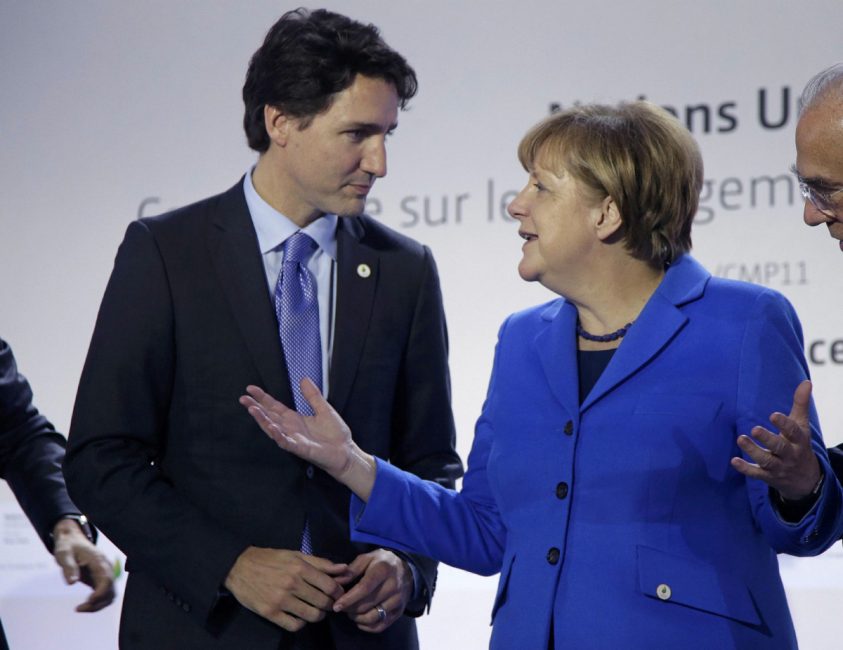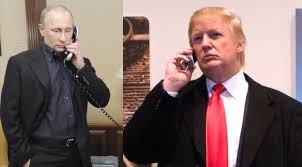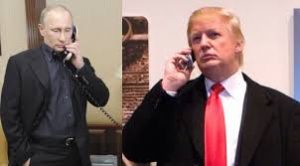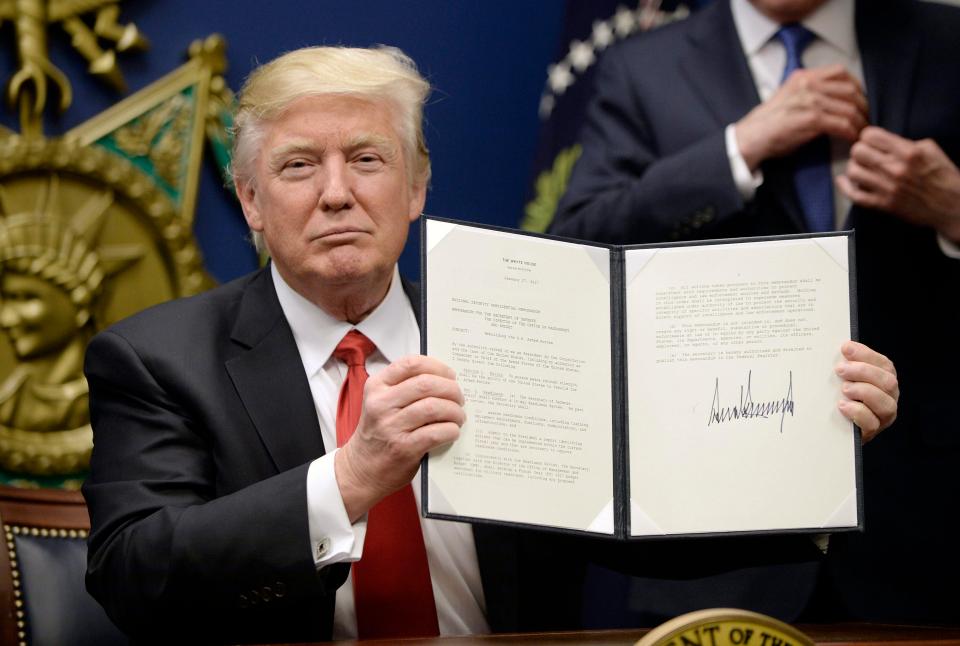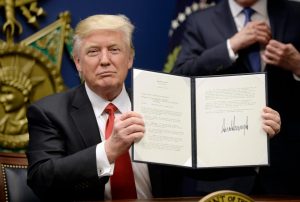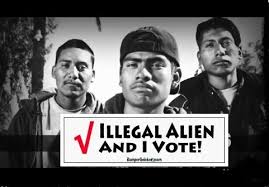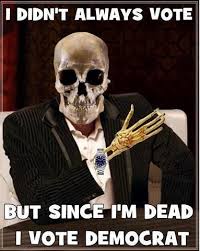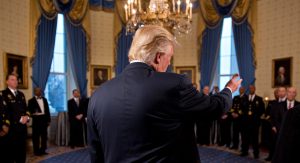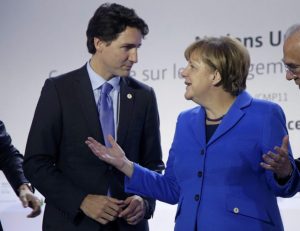
Global opposition to U.S. President Donald Trump intensified on Sunday, as world leaders including Canadian Prime Minister Justin Trudeau and German Chancellor Angela Merkel denounced his decision to limit entry from seven predominantly Muslim countries in the name of fighting terrorism.
Trudeau, in a tweet, said Canada would welcome those fleeing “persecution, terror and war. Canadians will welcome you, regardless of your faith.” Merkel expressed her concerns about the temporary ban during a call with Trump on Saturday, her chief spokesman Steffen Seibert said in a statement.
The chancellor “is convinced that the necessary, decisive fight against terrorism doesn’t justify placing people of a particular origin or faith under general suspicion,” Seibert said on Twitter, adding that Merkel had told Trump that international law requires states to “take in war refugees on humanitarian grounds.”
The condemnations signal the growing concern among some U.S. allies about the direction of foreign policy under Trump, and its impact on key issues from Middle East stability to climate change and global trade. Relations between Mexico and the U.S. have broken down over Trump’s plans to build a wall along their border, while the president’s repeated suggestion that NATO is obsolete has alarmed governments in Europe.
Criticism of the travel ban also extended beyond the world of politics: Netflix Inc.’s chief executive officer said the changes were “un-American.” Alphabet Inc.’s Google advised staff who may be affected by the order to return to the U.S. immediately.
‘Extreme Vetting’
“Our country needs strong borders and extreme vetting, NOW,” Trump toldhis almost 23 million Twitter followers early Sunday, after two judges temporarily blocked his administration from enforcing portions of the order that would have led to the removal from U.S. airports of refugees, visa holders and legal U.S. residents from the seven countries.
Neither ruling strikes down the executive order, which will now be subject to court hearings.
Under the order, the admission of all refugees would be suspended for 120 days. Citizens of Syria, Iraq, Iran, Sudan, Somalia, Yemen and Libya would be banned from entering the U.S. for 90 days, while the government determines what information it needs to safely admit visitors.
‘Visible Insult’
The ban is a “visible insult” to Muslims and Iran “will reciprocate with legal, consular and political undertakings,” the official Islamic Republic News Agency said. Iran also summoned Switzerland’s ambassador in Tehran in his capacity as the head of U.S. interests in the country, the Iranian Students’ News Agency reported. The U.S. and Iran haven’t had formal diplomatic ties since shortly after the Islamic Revolution in 1979.
Sudan also summoned the U.S. envoy to protest the ban, the state-run Sudan New Agency reported.
“We do not agree with this kind of approach and it is not one we will be taking,” U.K. Prime Minister Theresa May said Sunday in a statement, two days after meeting Trump to begin work on a trade accord. Her earlier refusal to condemn the order unleashed a flood of criticism in the U.K., including from some of her own Conservative Party colleagues.
May held a conference call on Sunday with Foreign Secretary Boris Johnson and Home Secretary Amber Rudd, instructing them to raise concerns about the ban with their U.S. counterparts in the State Department and Department of Homeland Security, according to her office. Johnson said on Twitter it was “divisive and wrong to stigmatize because of nationality.”
‘Shameful’
London’s first Muslim mayor, Sadiq Khan, on Facebook called the ban “shameful and cruel” and said the new policy “flies in the face of the values of freedom and tolerance that the USA was built upon.” Mexico’s former President Vicente Fox said on Twitter that the executive order had “united the world” against Trump.
Dutch Prime Minister Mark Rutte said refugees deserve a safe haven regardless of their background or religion, while Danish Foreign Minister Anders Samuelsen said the U.S. decision was unfair.
“The new U.S. president has taken office and his first acts in office show that he’s apparently serious,” German Foreign Minister Sigmar Gabriel told a crowd of supporters at the Social Democrat Party headquarters in Berlin on Sunday. “We as Germans and Europeans would do well rely on our own strengths and not to look out into the world with fear and submissiveness.”
U.S. Democrats labeled it a “Muslim ban” and criticized it as inhumane. Senator Richard Durbin, an Illinois Democrat, likened the order to the country’s slow response to the Holocaust prior to U.S. entry into World War II.
“Faced with the humanitarian crisis of our time, the United States cannot turn its back on children fleeing persecution, genocide and terror,” Durbin said in a statement calling Trump’s order a “ban on Muslims in the United States.”
“During the Holocaust we failed to fulfill our duty to humanity,” he said. “We cannot allow mindless fear to lead us into another regretful chapter in our history.”
https://www.bloomberg.com/politics/articles/2017-01-29/trump-order-on-refugee-limits-draws-iran-retaliation-threat
